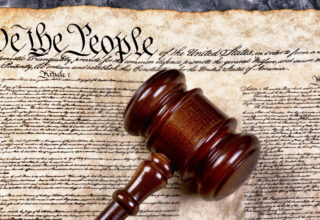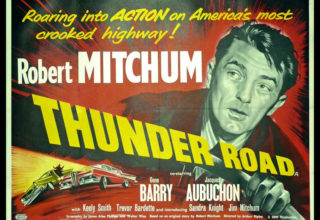
Lorem ipsum dolor sit amet, consecte adipi a ultra. Suspendisse ultrices hendrerit a vitae an sodales dolor.
Hirtenstraße 19, 10178 Berlin, Germany
+49 30 24041420
ouroffice@revolver.com


Treaty of Dumplin Creek is signed. With the last treaty of the State of Franklin, the Great Cherokee Nation ceded the territory now known as East Tennessee, allowing the hardworking settlers to make a living the only way they knew how––off the land.Through exhausting days, often punishing conditions, and with faith and strong spirit, these ancestors taught that things that must be done, are worth doing well. It is a lesson that Old Tennessee Distilling Company instills in each moonshine, vodka and gin that bears the Dumplin Creek name.

The Deal family opened a small outpost/store near the North Carolina/Tennessee state line. Known as Deal’s Gap, this mountain pass stretch of road eventually became US 129, but is best known as the Tail of the Dragon. With 318 curves in 11 miles, Tail of the Dragon is considered by many as one of the world’s best motorcycling and sports car roads. Old Tennessee Distilling Company’s Tail of the Dragon Tequilas offer the same “Grab Life by the Tail” thrills as its namesake.

Marcus Morton founded the American Temperance Society in Massachusetts to advocate total abstinence from the use of distilled spirits. Three years later, the first Tennessee temperance societies met in Kingsport and Nashville.

The first Prohibition law in the history of the United States is passed in Tennessee, making it a misdemeanor to sell alcoholic beverages in taverns and stores. The bill stated that all persons convicted of retailing “spirituous liquors” would be fined at the “discretion of the court” and that the fines would be used in support of public schools.

Birth of Caldonia Fackler Johnson. Born into slavery, Cal Johnson became a prominent Knoxville racetrack and saloon owner. By the time of his death, he was one of the wealthiest African-Americans in the state. Old Tennessee Distilling Company’s Black Mountain Rum and Black Mountain Spiced Rum were created to honor his legacy and contributions.

The Jack Daniel Distillery is officially established, making it the first registered distillery in the U.S.

Tennessee state legislature enacted a law forbidding the sale of alcohol within four miles of chartered rural schools.

The state legislature amended the Four-Mile Law to prohibit the sale of intoxicating liquors within four miles of any country school, virtually banning the liquor business in rural Tennessee.

The Adams Bill extended the restrictions of four miles to all towns of 5,000 population or less. Many towns immediately moved to recharter in order to eliminate liquor, and in most towns where the issue was put to a vote, the results created prohibition. Lynchburg voted wet, thanks to the influence of distiller Jack Daniel. By the middle of 1903, all towns of less than 5,000 population except six had voted dry. The nine larger cities remained wet, for a total of fifteen wet municipalities in eleven counties.

The Pendleton Act of 1907 extended the Four-Mile Law to the larger cities, and by the end of the year only Memphis, Chattanooga, Nashville, and LaFollette were wet.

The “bone-dry bill” of Governor Thomas C. Rye completed the prohibitionist campaign in Tennessee. This legislation made illegal the receipt or possession of liquor and prohibited the transportation of liquor into or out of the state.

18th Amendment to the US Constitution enacted, calling for the banning of the manufacture, sale, or transportation of alcoholic beverages. While Prohibition was expected to help the American economy and citizens, it soon backfired. Jobs and businesses were lost, restaurants and theaters lost revenue and the government lost $11 billion in excise tax revenue. Crime rates increased and an average of 1,000 Americans died each year during Prohibition due to poisons from poor alcohol manufacturing.

WSM’s “Grand Ole Opry” began broadcasting in Nashville.

Franklin Delano Roosevelt is elected 32nd president of the United States. He ran with a platform that pledged to end Prohibition.

Ike Costner, one of the largest moonshine distributors in East Tennessee, is on the first trainload of convicts sent to newly opened Alcatraz.

Prohibition ended with the ratification of the Twenty-first Amendment, which repealed the Eighteenth Amendment, the first constitutional amendment ever repealed.

The Jack Daniel’s Distillery reopened.

The Opry became home to the “Birth of Bluegrass” when Earl Scruggs joined Bill Monroe and his Bluegrass Boys on stage at the Ryman Auditorium.

Sam Phillips started Sun Records in Memphis.

Sun Records released the first recording of a young Elvis Presley. Elvis, along with label mates Johnny Cash, Jerry Lee Lewis, and Carl Perkins, led the rise of rockabilly and rock ‘n’ roll.

Kentucky moonshiner, Tweedle-O-Twill, dies in a crash in Knoxville while evading federal lawmen, inspiring the Robert Mitchum movie, “Thunder Road.”

“Thunder Road,” starring Robert Mitchum, is released.

Pritchard’s Distillery opened Tennessee’s first craft distillery in Kelso, Tennessee.
Local moonshine legend and author of autobiography, “Me and My Likker, Marvin ‘Popcorn’ Sutton,” is sentenced to 18 months in federal prison for illegal distilling of spirits and possession of a firearm as a felon. Sutton took his own life two days before he was supposed to report to prison.
Tennessee began reforming its Prohibition-era laws and eliminated many nearly insurmountable legal barriers to entry.

Thunder Road Distillery, now Old Tennessee Distilling Co., opens in Kodak, Tennessee.

The Tennessee Whiskey Trail begins. Made up of approximately 30 distilleries across the state, this tour allows visitors to experience the history and tradition of Tennessee whiskey, rum, gin, vodka and moonshine.
Thunder Road Distillery becomes Old Tennessee Distilling Company, celebrating the culture, people, history and spirits of this great state. Specializing in farm to bottle spirits made from local ingenuity and produce, Old Tennessee Distilling Company master distillers use recipes handed down through the generations to create whiskey, moonshine, gin, vodka and bourbon that honors the name “Tennessee” on every label.
100 PROOF / 50% ALC BY VOL.
